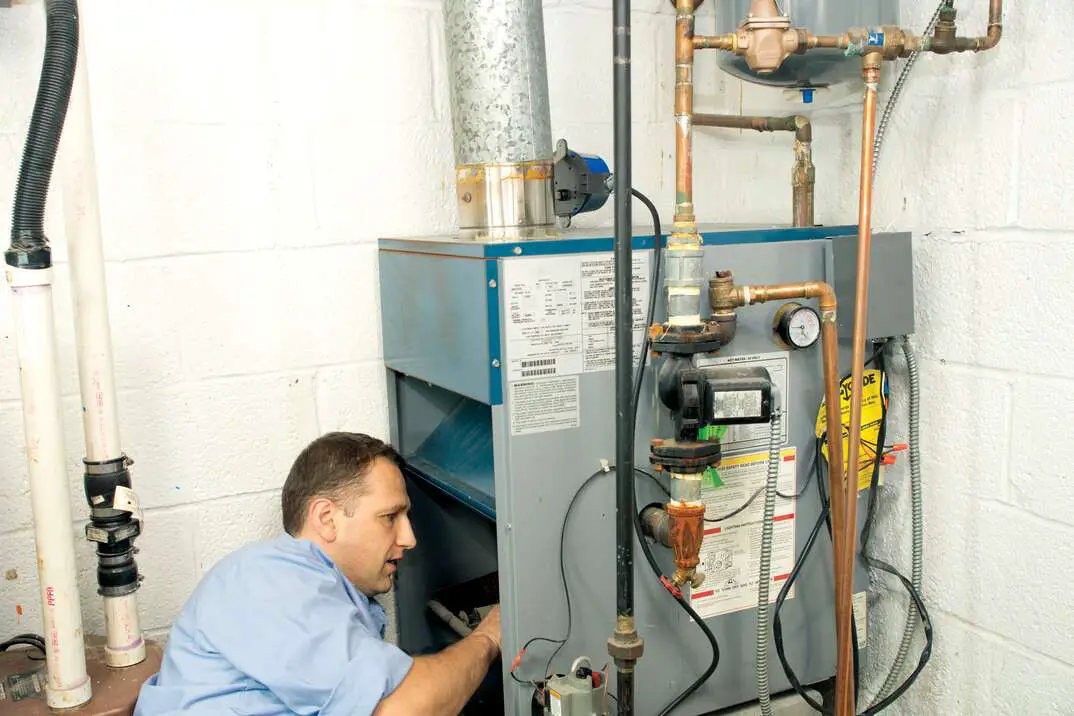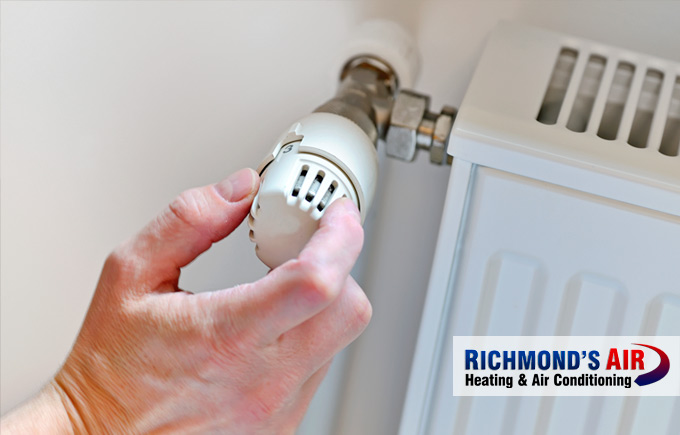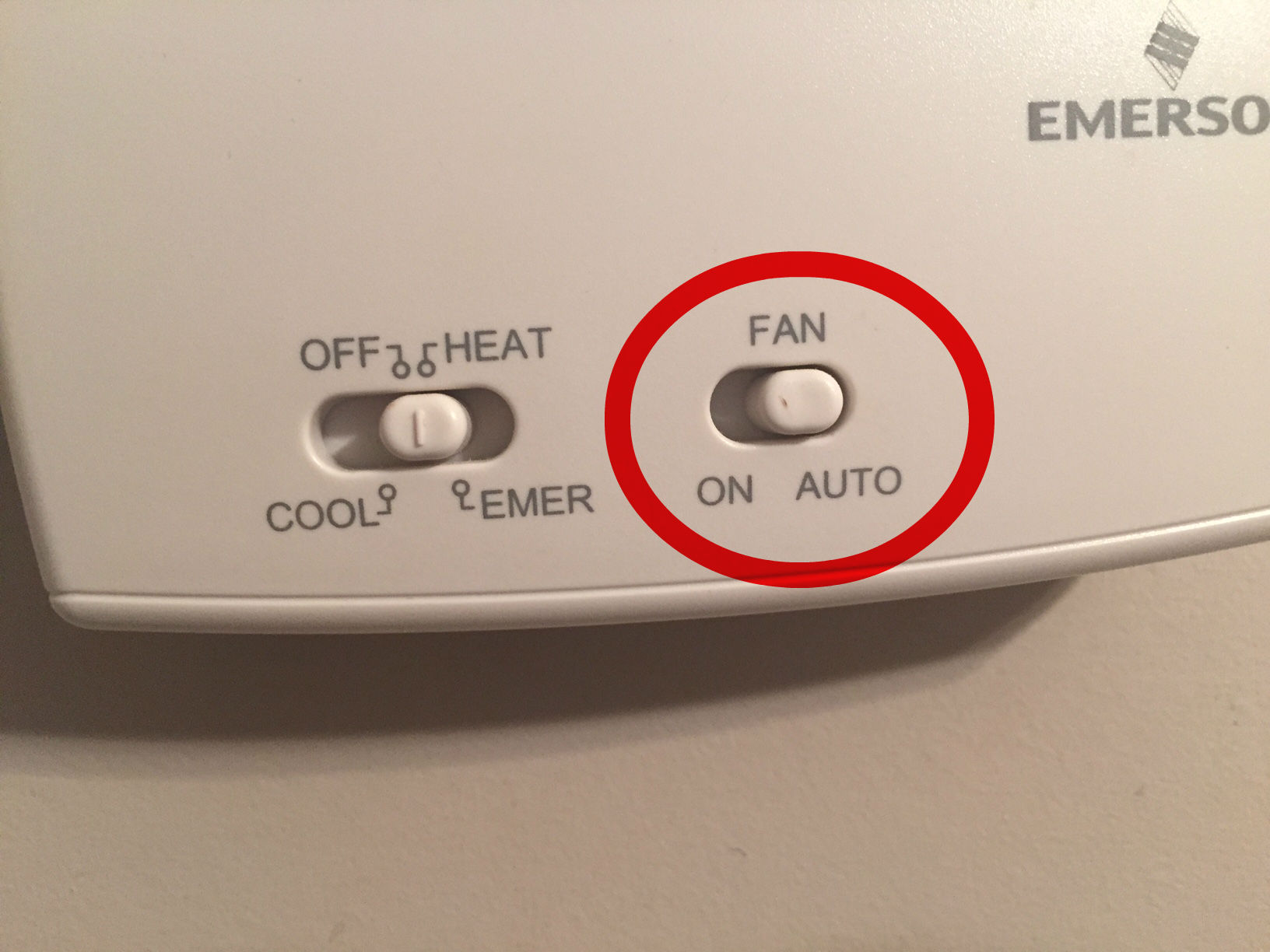If your heater isn’t working, check the thermostat settings and change the air filter as a first step. A common issue could be a clogged air filter, lack of maintenance, or thermostat problems.
If the furnace turns on but no heat is produced, it may be due to fuel supply or ignition system issues. To reset the heater, turn off the power supply, locate the reset button on the furnace, press it, and then turn the power back on.
Dirty components like the blower motor or flame sensor can prevent the furnace from operating efficiently, leading to equipment failure. Regular maintenance and addressing these common issues can help resolve heating problems effectively.


Credit: www.richmondsair.com
Common Reasons For Heater Not Working
Experiencing a non-functional heater in your house? Check the thermostat settings, replace air filters, and assure power supply. Intermittent maintenance, clogged air filters, and thermostat issues could be the root cause of the problem. Don’t overlook these common culprits to ensure a cozy home heating experience.
Dirty Air Filter
Check if the air filter is dirty, obstructing airflow and causing your heater to malfunction.
Thermostat Issues
Ensure the thermostat is set correctly and functioning properly for the heater to work efficiently.
Lack Of Gas
Make sure there is a sufficient supply of gas for the heater to produce heat effectively.
Blocked Ducts
Inspect ducts for any blockages that might be restricting the flow of air and affecting heating.
Blower Motor Or Flame Sensor Issues
Check the blower motor and flame sensor for any malfunctions that could be causing heating problems.
If your heater is not working, these common issues could be the culprits. Addressing these underlying problems can help restore your home’s warmth efficiently.
Diy Troubleshooting Tips
Check Thermostat Settings: Ensure the thermostat is set to the desired temperature.
Change Air Filter: Replace the air filter to ensure proper airflow.
Check Circuit Breakers: Verify that the circuit breakers are not tripped.
Inspect Gas Valve: Check the gas valve to ensure it is open and functioning correctly.
Reset the Heater: Locate the reset button on the furnace and follow the steps to reset it.
Professional Troubleshooting Steps
If your heater isn’t working, start by checking the thermostat responsiveness and settings. Next, change the air filter and inspect circuit breakers and the ON/OFF switch. Ensure the furnace door is securely closed and check the gas valve. Finally, consider calling a professional for further troubleshooting.
Call A Professional
If your heater is not working, it’s best to call a professional HVAC technician to diagnose and fix the issue. They have the expertise to identify and resolve complex heating system problems efficiently. An HVAC professional can ensure that your heater is repaired properly, avoiding further damage.
Inspection Of Ignition System
An essential troubleshooting step is to inspect the heater’s ignition system. A faulty ignition system can prevent the furnace from generating heat. The professional technician will examine the ignition components, such as the pilot light or electronic ignition, to determine if they are functioning correctly.
Check Oil Tank
Ensuring that there is an adequate supply of oil in the tank is crucial for the proper operation of an oil-based heating system. A professional will check the oil tank level and inspect for any blockages or leaks that could hamper the fuel supply.
Check Burner Eye Hole
The burner eye hole should be checked for any obstructions or soot buildup. Obstructions in the burner eye hole can impede the proper ignition and combustion of fuel, resulting in a malfunctioning heater. A professional will thoroughly inspect and clean the burner eye hole to ensure its unobstructed operation.
Test The Blower Capacitor
The blower capacitor plays a crucial role in facilitating the operation of the blower motor. A malfunctioning blower capacitor can lead to issues such as poor airflow or no heat production. A professional technician will test the blower capacitor to determine if it is functioning optimally and replace it if necessary.

Credit: www.airexpertsnj.com
Preventive Maintenance
Regular maintenance of your heater is crucial to ensure its optimal performance and longevity. By taking a proactive approach and implementing preventive maintenance measures, you can minimize the risk of your heater not working in your house. Here are some key preventive maintenance tasks that you should regularly undertake:
Regular Cleaning Of Air Filters
One of the simplest yet most effective preventive maintenance tasks is to clean or replace the air filters regularly. Over time, dust and debris can accumulate in the filters, causing them to become clogged. This restricts airflow and puts unnecessary strain on your heater, resulting in reduced efficiency and potential breakdowns. By cleaning or replacing the air filters every few months, you can ensure that your heater operates smoothly and efficiently.
Scheduled Professional Maintenance
While regular cleaning of air filters is something you can do on your own, it is equally important to schedule professional maintenance for your heater. A professional technician will have the expertise and knowledge to thoroughly inspect and service your heater, identifying any potential issues and addressing them before they become major problems. Periodic professional maintenance not only improves the efficiency of your heater but also extends its lifespan.
Monitoring Flame Sensor
The flame sensor is a crucial component of your heater that detects the presence of a flame. Over time, it can become dirty or covered with residue, impairing its ability to detect the flame accurately. As a result, your heater may not ignite or may shut off unexpectedly. Regular monitoring and cleaning of the flame sensor can prevent such issues and keep your heater running smoothly.
Checking Ducts For Blockages
Blocked or obstructed air ducts can hamper the airflow in your heating system, leading to reduced efficiency and uneven heating. Regularly inspecting and cleaning the ducts can help you identify and remove any blockages, ensuring that warm air flows freely throughout your house. This not only improves the overall comfort but also prevents strain on your heater.
Annual Inspection Of Gas Supply
Ensuring the safe and uninterrupted supply of gas is vital for the proper functioning of your heater. An annual inspection of the gas supply involves checking for leaks, verifying the gas pressure, and ensuring that the gas lines are in good condition. This prevents potential hazards and provides peace of mind knowing that your heater is operating safely.
By following these preventive maintenance measures, you can significantly reduce the chances of your heater not working in your house. Taking a proactive approach to maintain your heating system not only improves its efficiency and reliability but also helps you avoid costly repairs in the future.
When To Seek Professional Help
Facing issues where your heater isn’t working in your house? Check thermostat settings, the air filters, circuit breakers, and gas valve. For further assistance, call a professional to diagnose and fix the problem promptly.
Furnace Turns On But No Heat Produced
If your furnace turns on but no heat is being produced, it can be a frustrating and uncomfortable situation. There are a few potential causes for this issue. One possibility is that there may be a problem with the fuel supply or the ignition system. If something is preventing your furnace from receiving gas, it will be unable to combust and produce heat. Another potential cause could be a malfunctioning thermostat, which may not be sending the proper signal to the furnace to produce heat. Additionally, a clogged air filter or a closed off or obstructed vent could also result in your furnace turning on without generating any heat. If you are experiencing this issue, it may be time to seek professional help to diagnose and resolve the problem.Thermostat Unresponsive
A thermostat that is unresponsive is another common issue that may require professional assistance. If your thermostat is not turning on or not responding to temperature changes, it may indicate a faulty thermostat or a wiring problem. Your thermostat is responsible for communicating with your heating system and controlling the temperature in your home. If it is unresponsive, it can lead to a lack of heat or inconsistent temperatures. To resolve this issue, a professional technician can accurately diagnose and repair any problems with your thermostat or its wiring.Persistent Issues After Diy Troubleshooting
If you have attempted to troubleshoot and address heating issues yourself but the problems persist, it may be time to call in a professional for help. DIY troubleshooting can be a great first step to try and resolve minor issues, such as changing the air filter or checking the circuit breakers. However, if the problems continue after you have taken these steps, it indicates a more complex or serious problem that requires professional expertise. Professional technicians have the knowledge and experience to identify and fix underlying issues that may be causing your heater to not work properly.Unusual Noises Or Smells
Strange noises or unusual smells coming from your heating system are warning signs that should not be ignored. If your heater is making grinding, banging, or rattling noises, it could indicate a mechanical issue or a loose component within the system. Unpleasant smells, such as a burning odor, can be a sign of a potential electrical problem or even a gas leak. These issues require immediate attention from a professional to ensure the safety of your home and its occupants. Professional technicians can diagnose the source of the noises or smells and provide appropriate repairs or replacements.Age Of Heating System
The age of your heating system can also play a significant role in its performance. Over time, wear and tear can lead to diminished efficiency and increased likelihood of breakdowns. If your heating system is over a decade old and you are experiencing ongoing issues, it may be a sign that it is time to replace the system. A professional can assess the condition of your heating system and provide recommendations on whether a new installation is necessary. Investing in a new, energy-efficient system can not only improve the comfort of your home but also lead to long-term cost savings on energy bills..jpg.aspx)
Credit: www.ars.com
Frequently Asked Questions On Why Is My Heater Not Working In My House
What To Do If House Heater Is Not Working?
If your house heater isn’t working: Check thermostat response and settings, change air filter, check circuit breakers and ON/OFF switch, securely close furnace door, and check gas valve. If issues persist, consult a professional for further assistance. Also ensure regular professional maintenance to prevent future problems.
Why Does My House Heater Turn On But No Heat?
If your house heater turns on but there is no heat, it could be due to a problem with the fuel supply or ignition system. Check if something is blocking the gas supply or if the furnace is receiving gas.
If there is no fuel to combust, the furnace won’t create any heat.
How Do I Reset The Heater In My House?
To reset the heater in your house, follow these steps: 1. Turn off the power supply by flipping the breaker in the circuit box. 2. Locate the reset button on the furnace and press it. 3. If the button is popped up, press it down.
4. Return the cover to the blower compartment. 5. Turn the power back on.
What Can Cause Your Heat To Stop Working In Your House?
The heater may stop working due to a clogged air filter, lack of maintenance, thermostat issues, malfunctioning fuse box, lack of gas, blocked ducts, or a cracked heat exchanger. Regular maintenance can help prevent these issues. If your heater doesn’t start, it may be due to a dirty furnace.
Why Is My Heater Not Turning On?
If your heater isn’t turning on at all, it could be due to several reasons such as a blown fuse, faulty thermostat, or a problem with the power supply.
Conclusion
If you find yourself facing heater problems, don’t worry. There are many simple solutions and professional help available to get your heater up and running efficiently. From checking the thermostat settings to ensuring adequate fuel supply, troubleshooting your heater issues can be easily manageable.
Remember, regular maintenance is key to preventing future complications. Seek professional assistance from HVAC experts to ensure your home stays warm and cozy throughout the winter.